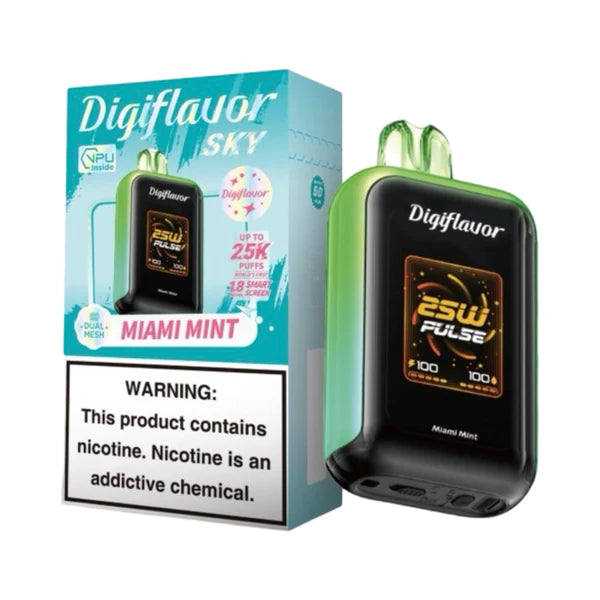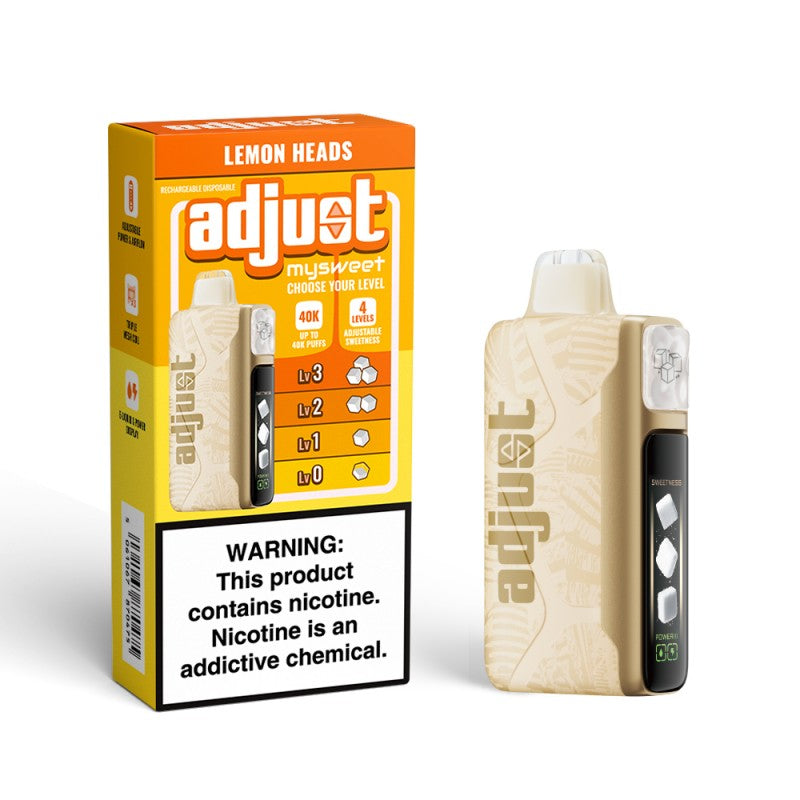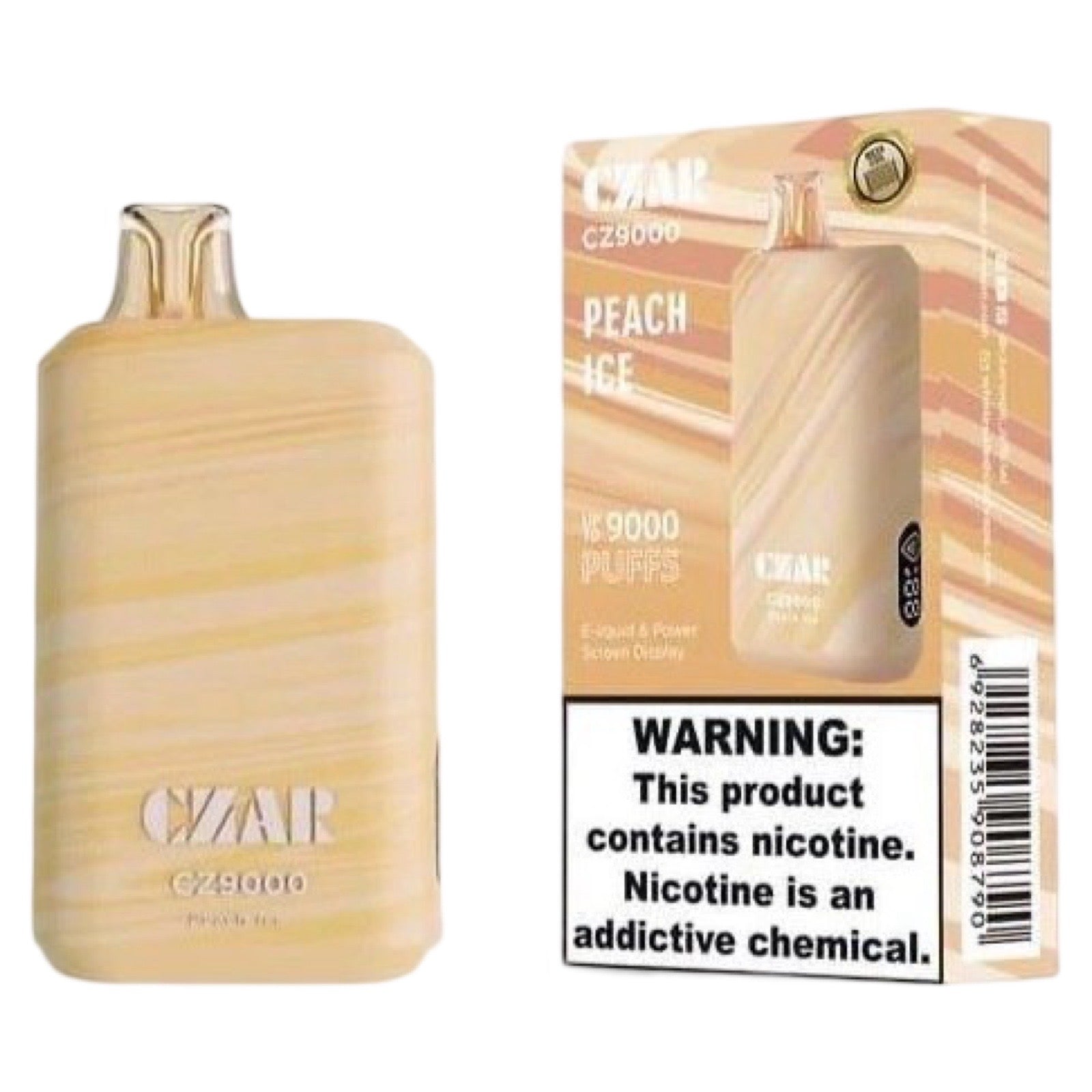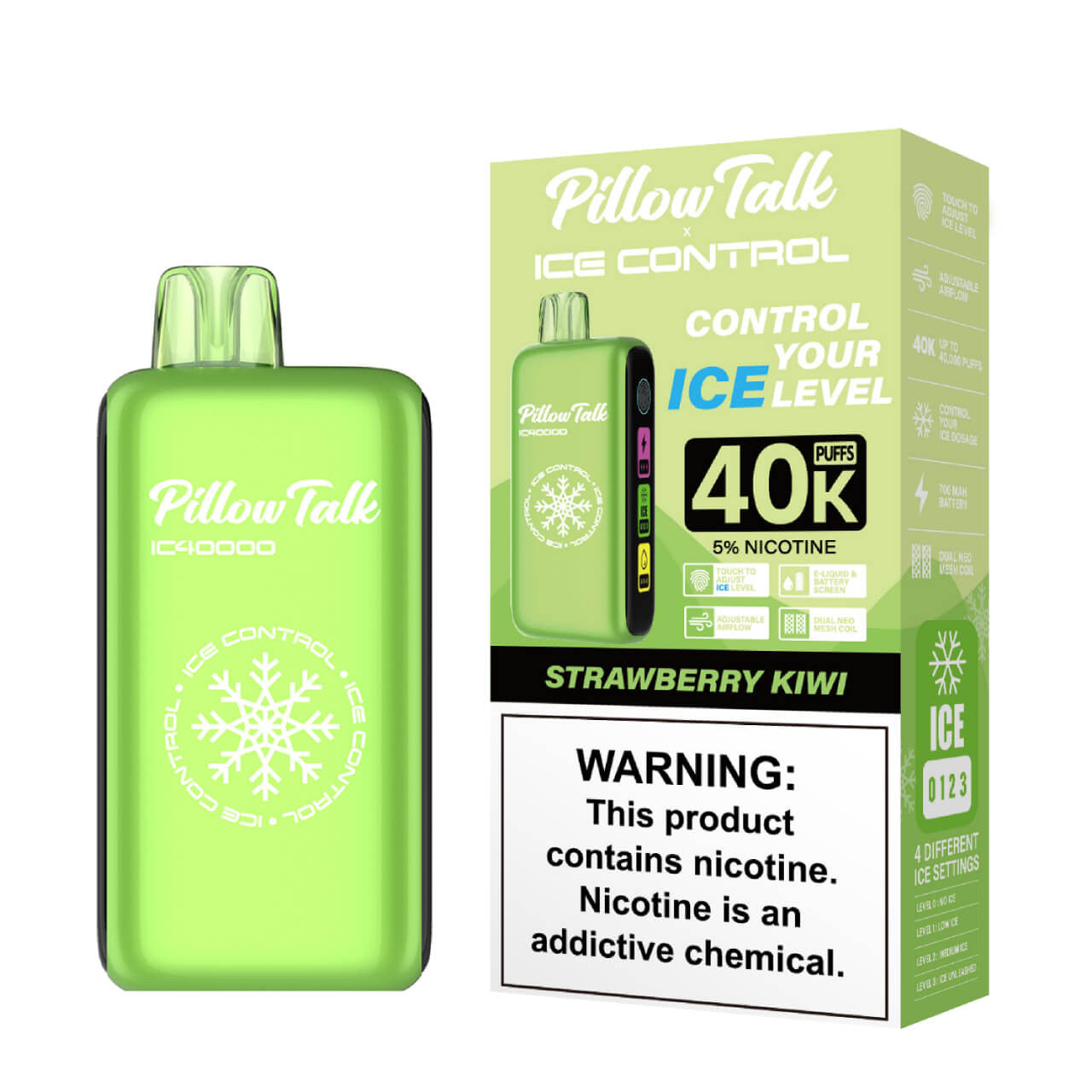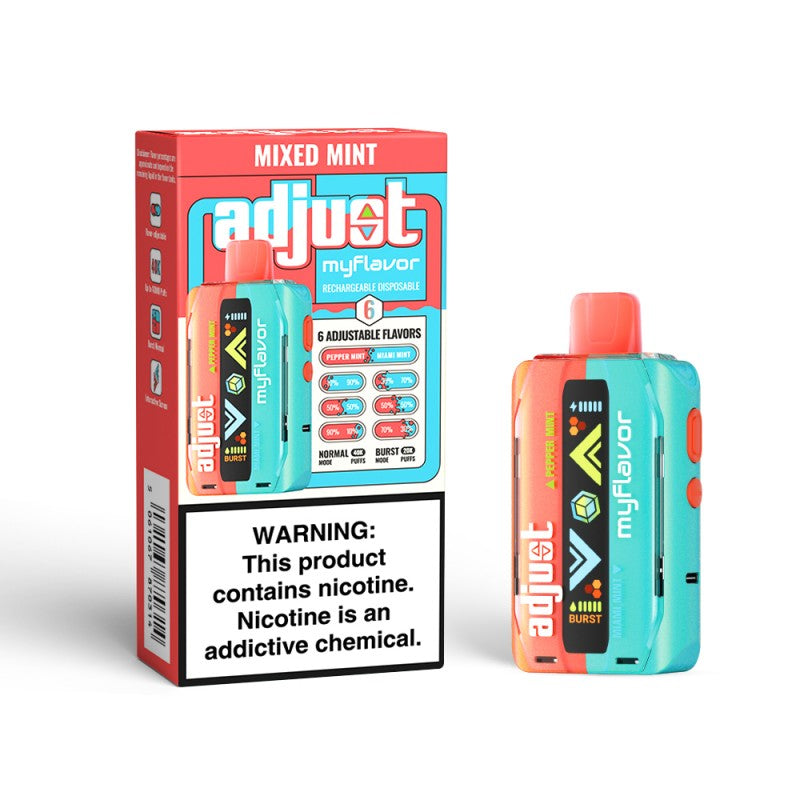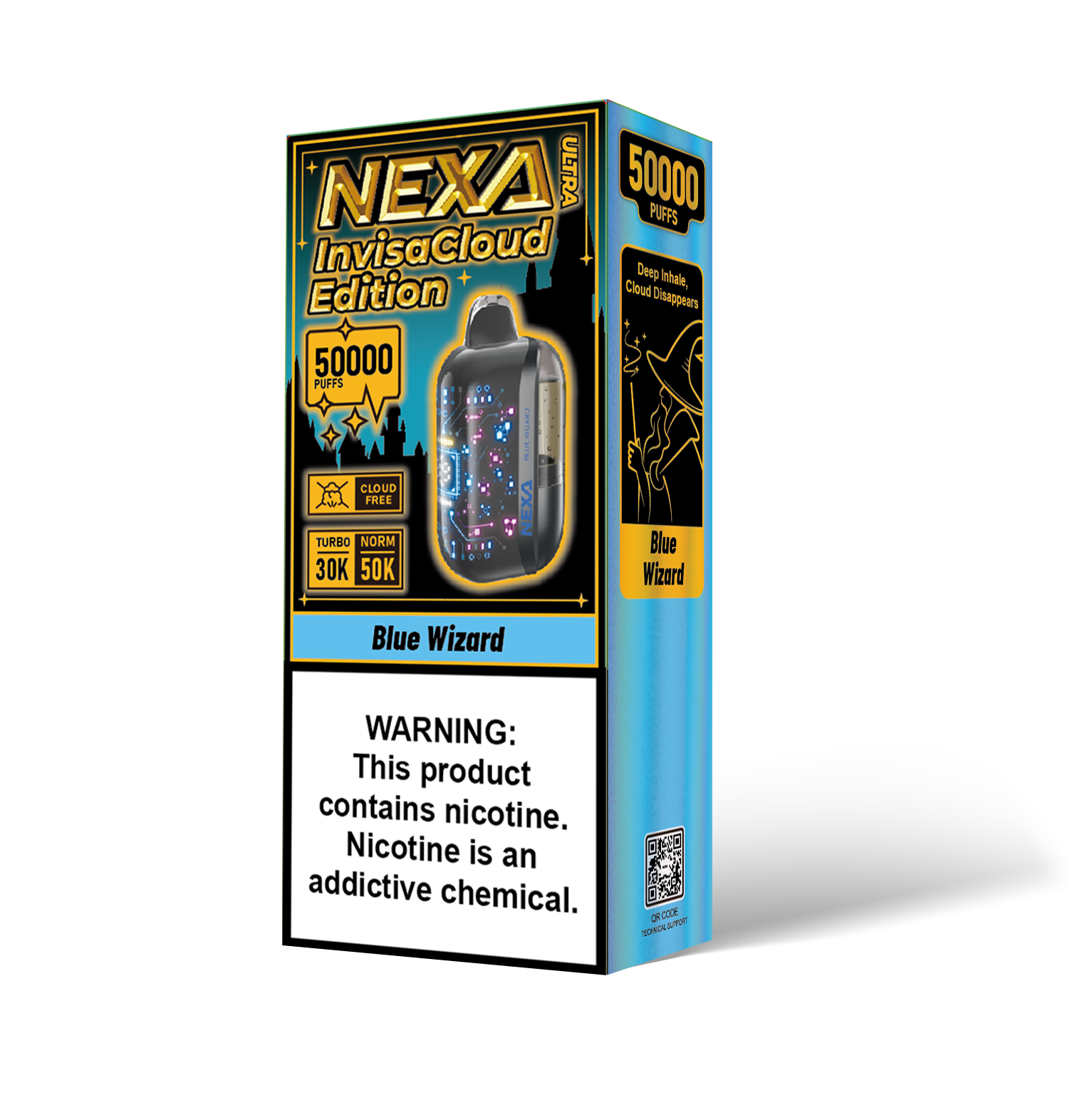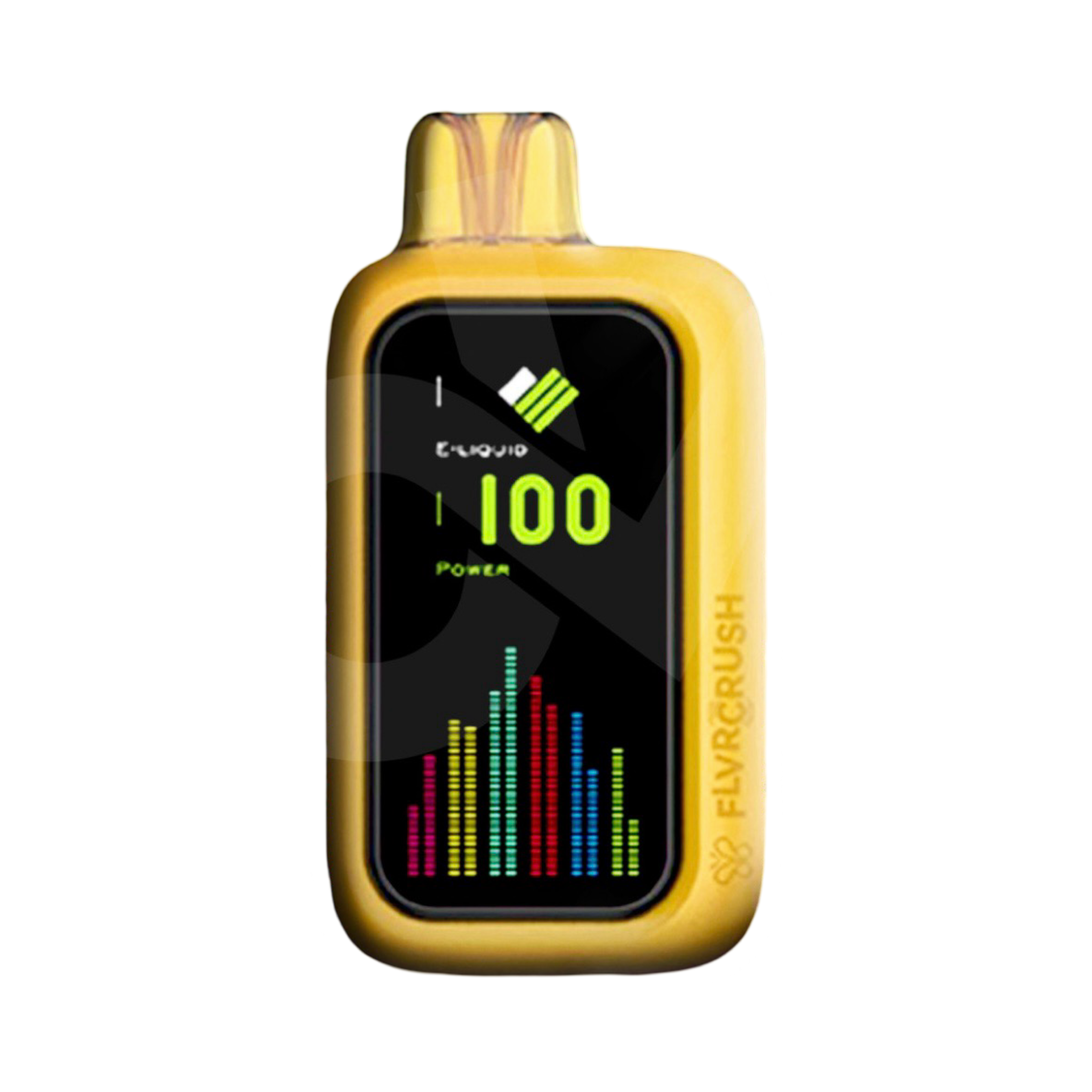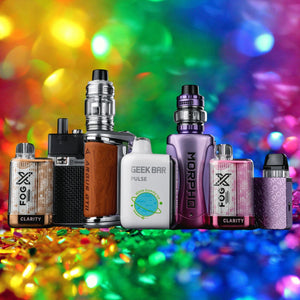Одноразовые вейпы стали популярным выбором среди любителей вейпинга благодаря своей простоте в использовании, широкому выбору вкусов и доступности. Однако с ростом их популярности также возникают опасения по поводу их безопасности. Являются ли они действительно более безопасной альтернативой традиционным сигаретам, или они представляют собой скрытые риски? Этот гид охватывает все, что вам нужно знать об одноразовых вейпах, от последствий для здоровья до мнений экспертов.
Одноразовые вейпы: безопасны ли они?
Одноразовые вейпы — это компактные, заранее заполненные устройства, предназначенные для одноразового использования. Они привлекательны для пользователей своей простотой — не требуется заправка, подзарядка или обслуживание. Однако, как и с любым продуктом, связанным с ингаляцией веществ, безопасность является значительной проблемой.
Ключевые факторы безопасности, которые следует учитывать
- Химический состав
Большинство одноразовых вейпов содержат электронные жидкости, изготовленные из смеси пропиленгликоля (PG), растительного глицерина (VG), никотина и ароматизаторов. Хотя PG и VG обычно считаются безопасными для употребления, их влияние при вдыхании в течение длительного времени все еще изучается. Некоторые плохо изготовленные продукты могут также содержать вредные добавки, включая тяжелые металлы или диацетил, химическое вещество, связанное с проблемами легких.
- Риски, связанные с аккумулятором
Одноразовые вейпы используют небольшие литий-ионные батареи. Хотя они удобны, эти батареи могут перегреваться, особенно при воздействии прямых солнечных лучей или физическом повреждении. Устройства низкого качества увеличивают риск неисправности, что может привести к утечкам или взрывам.
- Регулирование и стандарты
Не все одноразовые вейпы соответствуют одинаковым стандартам производства. Продукция от уважаемых брендов, таких как UVP, Sili Vape и Elux Cyberover проходит строгий контроль качества, но поддельные или универсальные версии могут обойти эти проверки, ставя пользователей под угрозу.
Мы придаем первостепенное значение предложению только высококачественных продуктов для обеспечения безопасности пользователей.
Почему выбор качественных вейпов важен для вашего здоровья
Когда дело доходит до вейпинга, выбор качественных продуктов имеет решающее значение для минимизации рисков для здоровья, связанных с курением.
Поддельные или низкокачественные вейпы могут не только предоставить неудовлетворительный опыт, но и нанести вред вашему здоровью.
Это почему его всегда лучше покупать у надежных розничных продавцов, таких как Vapesale24, который предлагает широкий выбор премиальных одноразовых вейпов и аксессуаров. Среди самых популярных и надежных вариантов, вот несколько выдающихся моделей, доступных на Vapesale24, каждая из которых предлагает исключительную производительность и долговечность.
Geek Bar Digiflavor Sky 25000
The Geek Bar Digiflavor Sky 25000 является отличным выбором для тех, кто ищет мощный одноразовый вейп с огромной емкостью. С до 25000 затяжек, он обеспечивает продолжительный опыт вейпинга без частой замены. Обладая стильным дизайном, он сочетает в себе простоту использования с впечатляющим вкусом. Устройство предварительно заполнено высококачественной жидкостью для вейпинга, обеспечивая плавный и стабильный пар на протяжении всего устройства продолжительность жизни. Будь то ты будь вы новичком или опытным парильщиком, Geek Bar Digiflavor Sky 25000 обещает удовлетворить ваши желания на долгое время.
продукт-вставка1
Настройте MySweet 40K
Если ты любитель сладких, насыщенных вкусов, Настройте MySweet 40K одноразовый вейп — ваш выбор. Известный своей универсальностью, он предлагает 40 000 затяжек—один из самых высоких на рынке. Его регулируемая функция воздушного потока позволяет пользователям точно настраивать свой опыт вейпинга для идеального затяжки каждый раз. Устройство заполнено премиальной жидкостью для вейпинга, обеспечивая приятный и удовлетворительный вейп. С его большей емкостью, Adjust MySweet 40K гарантирует, что вы не будет не нужно постоянно беспокоиться о замене вашего вейпа, что делает его идеальным как для случайных, так и для долгосрочных вейперов.
продукт-вставка2
ЦАРЬ CZ9000
Для тех, кто ценит как качество, так и дизайн, ЦАРЬ CZ9000 выделяется. Этот стильный, элегантный одноразовый вейп предлагает 9000 затяжек, обеспечивая гладкий, насыщенный вкусом пар с каждым вдохом. Его компактный, простой в использовании и с прочной конструкцией, что делает его надежным выбором для тех, кто в пути. CZ9000 доступен в различных вкусах, каждый из которых разработан с использованием высококачественных ингредиентов для улучшения вашего опыта вейпинга. Если ты ищете сочетание элегантности и производительности, это одноразовый вейп для вас.
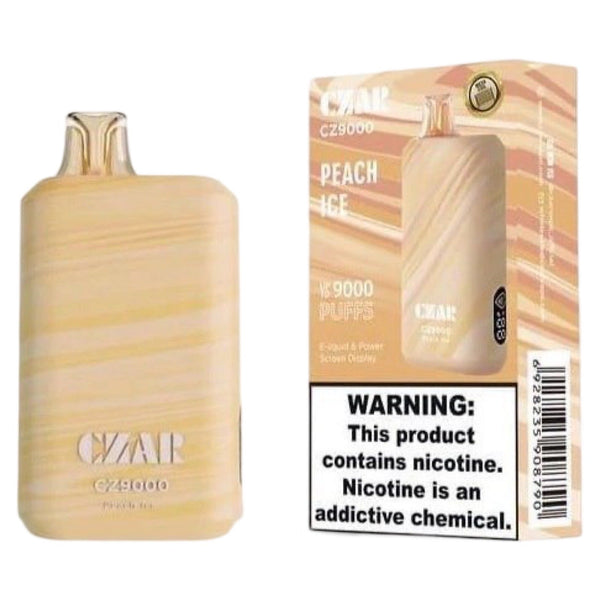
Подушка Ток Ледяной Контроль IC40000
The Подушка Ток Ледяной Контроль IC40000 является идеальным устройством для любителей ментола. С 40 000 затяжек, это предлагает невероятно длительный опыт. Добавление контроля льда позволяет пользователям наслаждаться прохладным, свежим ощущением с каждым вдохом, что делает его освежающим выбором, особенно в теплую погоду. Будь то ты Независимо от того, новичок вы в вейпинге или опытный энтузиаст, Pillow Talk Ice Control IC40000 обеспечивает гладкий и стабильный пар с освежающим ментоловым оттенком. Его большое количество затяжек и разнообразие вкусов гарантируют, что он остается одним из лучших выборов среди долгосрочных вейперов.
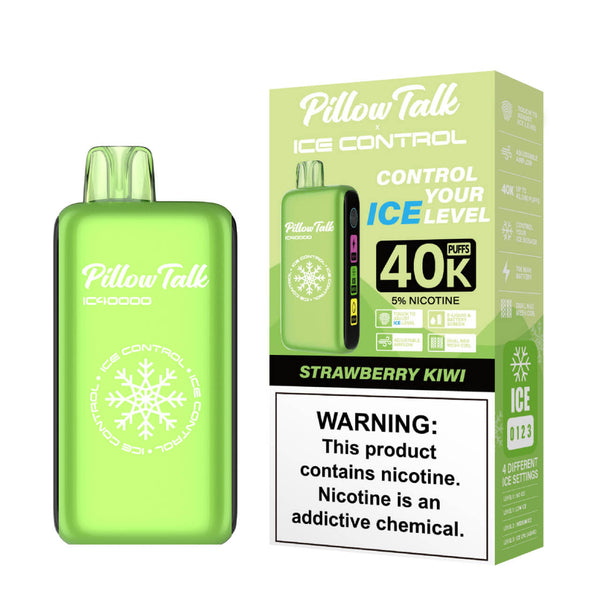
Настройте MyFlavor 40K
Для вейперов, которые любят настраивать свой опыт, Настройте MyFlavor 40K обеспечивает полный контроль. С его 40 000 затяжек и настраиваемые параметры вкуса, этот одноразовый вейп гарантирует, что вы сможете настроить свой опыт вейпинга в соответствии с вашими точными предпочтениями. Независимо от того, предпочитаете ли вы смелые, интенсивные вкусы или что-то более тонкое, эта модель позволяет легко их регулировать. Высокое количество затяжек гарантирует, что вы получите максимум от своего вейпа, а его портативный дизайн делает его идеальным для тех, кто в пути.
продукт-вставка5
NEXA Ультра 50000
Если ты ищете лучшее из лучших в одноразовых вейпах, не ищите дальше, чем NEXA Ультра 50000. Будучи одной из моделей с наибольшей мощностью, она обеспечивает до 50 000 затяжек, предоставляя вам невероятно длительный опыт. NEXA Ultra известен своими плавными затяжками, высококачественной жидкостью для электронных сигарет и исключительной прочностью. Независимо от того, ты "Если вы являетесь заядлым парильщиком или хотите наслаждаться устройством, которое прослужит долго, NEXA Ultra 50000 - идеальный вариант, сочетающий высокую производительность с удобством."
продукт-вставка6
СВЛ BX12000
The СВЛ BX12000 является универсальным одноразовым вейпом 12000 затяжек гладкого, ароматного пара. Его разработан для вейперов, которые хотят баланс между производительностью и портативностью. SVL BX12000 обеспечивает отличный вкус с каждым затяжкой и доступен в различных вкусных вариантах, что делает его любимцем среди энтузиастов вейпинга. Независимо от того, ты новичок в вейпинге или опытный, это устройство обеспечивает простой в использовании и приятный опыт.
продукт-вставка7
FLVRCRUSH 16000
Для тех, кто предпочитает большую емкость, не жертвуя вкусом, FLVRCRUSH 16000 предложения 16000 затяжек. Известен своим вкусным ассортиментом и гладким паром, его надежный выбор для вейперов, которые хотят, чтобы устройство служило долго. FLVRCRUSH 16000 предлагает удовлетворительный опыт с каждым затяжкой, обеспечивая возможность наслаждаться вашим вейпом долгое время. Его элегантный дизайн и впечатляющие варианты вкусов делают его выдающимся на рынке одноразовых вейпов.
продукт-вставка8
Когда дело доходит до вейпинга, его важно инвестировать в качественные продукты, которые обеспечивают безопасный и приятный опыт. Дешевые, поддельные вейпы не только лишены вкуса, но и могут быть вредны для вашего здоровья. Выбирая проверенные бренды, такие как те, что представлены в Vapesale24, гарантирует, что вы получаете продукт, который является как безопасным, так и эффективным. Эти вейпы разработаны для обеспечения гладкого, ароматного пара на более продолжительные сроки, предоставляя удовлетворительное ощущение с каждым затяжкой.
В Vapesale24, мы предлагаем широкий выбор одноразовых вейпов, электронных жидкостей, картриджей и других необходимых принадлежностей для вейпинга. Независимо от того, ты ищете устройство с большим количеством затяжек или с элегантным, стильным дизайном, ты будешь найдите всё на Vapesale24. Выбирайте качество, выбирайте удовлетворение и наслаждайтесь премиальным опытом вейпинга!
Риски использования одноразовых вейпов

Хотя одноразовые вейпы рекламируются как более безопасная альтернатива курению, они все равно несут в себе риски. Понимание этих рисков имеет решающее значение для принятия обоснованных решений.
Риски для здоровья
- Никотиновая зависимость
Одноразовые вейпы часто содержат более высокие концентрации никотина по сравнению с традиционными сигаретами или перезаряжаемыми вейпами. Это делает их крайне зависимыми, особенно для новичков или молодежи. Со временем зависимость от никотина может привести к увеличению частоты сердечных сокращений, высокому кровяному давлению и другим сердечно-сосудистым проблемам.
- Респираторные проблемы
Вдыхание паров электронных жидкостей может вызвать у некоторых пользователей раздражение горла, кашель или даже воспаление легких. Хотя вейпинг не производит смолу, как сигареты, некоторые ароматизаторы могут разлагаться на потенциально вредные химические вещества при нагревании.
- Неизвестные долгосрочные эффекты
Вейпинг — это относительно новая тенденция, и его долгосрочные последствия для здоровья все еще изучаются. Первоначальные исследования показывают, что длительное использование может повлиять на функцию легких, но для того, чтобы сделать окончательные выводы, необходимо провести больше исследований.
Экологические риски
Одноразовые вейпы значительно способствуют образованию экологических отходов. Эти устройства одноразового использования изготовлены из пластика и металла, с встроенными батареями, которые часто оказываются на свалках. В отличие от многоразовых вейпов, их нельзя заправить или перезарядить, что усугубляет растущую проблему электронных отходов.
Проблемы с качеством продукции
Поддельные или низкокачественные одноразовые вейпы представляют собой серьезный риск для пользователей. Эти продукты могут использовать некачественные материалы или небезопасные формулы жидкости для вейпов, что увеличивает вероятность негативных последствий для здоровья.
Мы гарантируем, что наши продукты поступают только от надежных брендов, таких как Geek-бар и Нулевой бар, минимизируя эти риски для наших клиентов.
Как безопасно использовать одноразовый вейп?
Правильное использование одноразовых вейпов может значительно снизить потенциальные риски. Следуйте этим шагам, чтобы обеспечить более безопасный опыт:
- Покупайте у надежных продавцов
Выбор надежного поставщика имеет решающее значение. Нерегулируемые или черные рынковые продукты часто не имеют сертификатов безопасности и могут содержать вредные ингредиенты. Наши одноразовые вейпы от брендов, таких как Орион Вейп и Elux Cyberover соответствовать строгим стандартам качества.
- Проверьте упаковку и ярлыки
Перед использованием одноразового вейпа проверьте его упаковку на наличие прозрачной маркировки, списков ингредиентов и знаков сертификации. Это гарантирует, что продукт соответствует нормам здоровья и безопасности.
- Умеренное использование
Чрезмерное использование одноразового вейпа может увеличить зависимость от никотина и усугубить побочные эффекты, такие как головокружение или головные боли. Начинайте с небольших затяжек и избегайте частого использования, чтобы предотвратить чрезмерное воздействие.
- Хранить правильно
Чтобы избежать проблем с батареей, держите свой одноразовый вейп подальше от источников тепла или прямых солнечных лучей. Когда не используете, всегда храните его в прохладном, сухом месте.
- Утилизируйте ответственно
Когда ваш вейп пуст, почему бы не выбросить его в обычный мусор? Чтобы минимизировать воздействие на окружающую среду, ищите программы переработки, которые принимают электронные отходы.
Безопасность здоровья одноразовых вейпов

"Являются ли одноразовые вейпы более здоровыми, чем курение традиционных сигарет? Многие пользователи обращаются к вейпингу как к менее вредной альтернативе, но это не означает, что они совершенно безопасны."
- Сниженное воздействие токсинов
Сигареты выделяют тысячи вредных химических веществ, включая канцерогены, такие как смола и бензол. Одноразовые вейпы не сжигают табак, что значительно снижает воздействие этих токсинов.
- Контроль никотина
Вейпы позволяют пользователям выбирать электронные жидкости с различными уровнями никотина, что упрощает управление потреблением. Однако пользователям следует быть осторожными, так как высокие концентрации в некоторых одноразовых устройствах могут привести к чрезмерному потреблению.
- Целевая аудитория
Эксперты подчеркивают, что вейпинг следует использовать только как средство для прекращения курения, а не как привычку для некурящих или молодежи. Неправильное использование некурящими подрывает его потенциальные преимущества для здоровья.
Одноразовые вейпы: вред или безопасность?
Безопасность одноразовых вейпов зависит от контекста их использования и качества продукта. Хотя они предлагают некоторые преимущества, у них также есть недостатки, которые пользователи должны тщательно взвесить.
Преимущества
- Простой в использовании и не требующий обслуживания.
- Широкий выбор вкусов и уровней никотина.
- Компактный и портативный дизайн.
Недостатки
- Экологический вред из-за отходов.
- Риск никотиновой зависимости.
- Неизвестные долгосрочные последствия для здоровья.
Что вам нужно знать о безопасности вейпов?
Прежде чем пробовать одноразовые вейпы, важно ознакомиться с их безопасностью. Вот несколько факторов, которые стоит учитывать:
- Выбирайте качественные продукты
Уважаемые бренды, такие как РРЦ и Лучший вейп инвестируйте в контроль качества, обеспечивая соответствие своих продуктов стандартам безопасности. Избегайте дешевых, небрендовых вейпов, которые могут содержать вредные ингредиенты или дефектные батареи.
- Будьте внимательны к уровням никотина
Одноразовые вейпы часто содержат более высокие концентрации никотина, чем ожидалось. Начинайте с более низких уровней и постепенно корректируйте, чтобы предотвратить чрезмерное потребление.
- Понимание рисков
Одноразовые вейпы не являются полностью безопасными. Ознакомьтесь с потенциальными побочными эффектами и проконсультируйтесь с медицинским работником, если вы испытываете какие-либо негативные реакции.
Безопасность одноразовых вейпов: мнения экспертов
Безопасность одноразовых вейпов остается предметом обсуждения среди специалистов в области здравоохранения и безопасности. В то время как некоторые эксперты оптимистично относятся к потенциальным преимуществам, другие призывают к осторожности, указывая на риски, которые все еще необходимо учитывать.
С одной стороны, многие эксперты, особенно те, кто сосредоточен на прекращении курения, рассматривают одноразовые вейпы как положительный инструмент для людей, стремящихся бросить курить. Эти эксперты подчеркивают, что по сравнению с традиционными сигаретами одноразовые вейпы содержат значительно меньше вредных химических веществ. Отсутствие горящего табака снижает производство токсичных веществ, таких как смола и угарный газ, которые ответственны за многие серьезные проблемы со здоровьем, связанные с курением. Для курильщиков, пытающихся перейти на менее вредную альтернативу, одноразовые вейпы могут служить менее опасным вариантом, особенно когда они используются как часть более широкой попытки полностью отказаться от никотина.
Тем не менее, другие эксперты выражают обеспокоенность по поводу рисков, связанных с одноразовыми вейпами. Несмотря на их сниженное содержание токсинов по сравнению с традиционными сигаретами, одноразовые вейпы не лишены рисков. Одной из самых больших проблем является зависимость от никотина. Высокий уровень никотина во многих одноразовых вейпах может быстро привести к зависимости, особенно у тех, кто не является регулярным курильщиком. Кроме того, существует беспокойство о долгосрочных последствиях для здоровья от вдыхания парообразных веществ. Полное воздействие вейпинга на здоровье легких и других органов все еще не совсем понятно, так как исследования продолжаются. Кроме того, эксперты подчеркивают важность предотвращения использования этих продуктов молодыми людьми, так как раннее воздействие никотина может привести к пожизненной зависимости и другим проблемам со здоровьем.
Хотя одноразовые вейпы могут предложить менее вредную альтернативу для людей, стремящихся бросить курить, они не лишены рисков. Их следует использовать с осторожностью, осознавая потенциальную зависимость и необходимость ответственного регулирования. Мы заботимся о вашей безопасности. Мы предлагаем только премиальные одноразовые вейпы от надежных брендов, таких как Орион Вейп, Geek-бар, и Elux Cyberover. Эти продукты тщательно отобраны, чтобы соответствовать высоким стандартам безопасности, что дает вам уверенность при выборе варианта вейпинга. Независимо от того, являетесь ли вы курильщиком, пытающимся бросить, или опытным вейпером, мы призываем вас сделать осознанный выбор и ознакомиться с нашей коллекцией сегодня.


